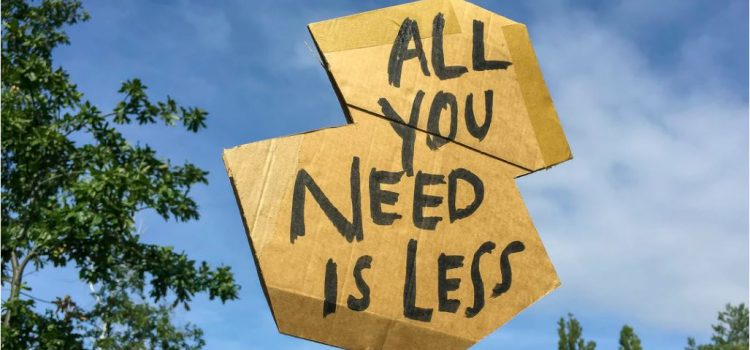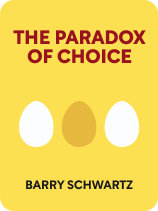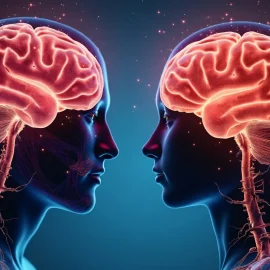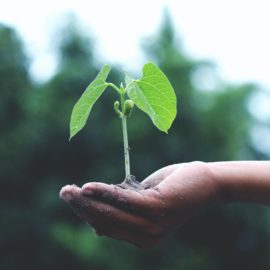

This article is an excerpt from the Shortform book guide to "The Paradox of Choice" by Barry Schwartz. Shortform has the world's best summaries and analyses of books you should be reading.
Like this article? Sign up for a free trial here .
Why is it better to be a satisficer than a maximizer? How can maximizing actually lead to anxiety and depression?
There are two types of decision-makers: maximizers and satisficers. Maximizers try to weigh every option and won’t make a decision until they’re sure that it’s the best one. Alternatively, satisficers will settle for an option that is “good enough.” You would think that maximizers would be happier in the end because they made the better choice. However, satisficers tend to come out on top.
Continue reading to learn why more is less.
How Maximizing Harms Decision-Making
While maximizers may think they’re making the best decisions for themselves, their preoccupation with having “the best” makes them feel dissatisfied with their choices.
In The Paradox of Choice: Why More Is Less, Schwartz writes that maximizers are susceptible to “buyer’s remorse,” meaning that they’re likely to regret their purchases, especially if they find out later that something “better” was available. Maximizers are also likely to feel anticipatory regret: Even before they make a decision, they feel there may be a better option that they’re not considering.
The regret maximizers tend to feel before or after making decisions can lead to general dissatisfaction with their choices. Even if a maximizer always makes the best decision objectively speaking, they’re likely to feel worse subjectively, because the decision ultimately didn’t bring them satisfaction.
While you might think that making the objectively best decision is important for major life choices, such as education, careers, or relationships, Schwartz believes your subjective experience still matters most.
For example, a maximizer could choose a job in the perfect location for them with an excellent salary, while a satisficer could accept a job that’s mostly the right fit, but that’s in an inconvenient neighborhood and pays a little less. The maximizer would still be less satisfied because they’re thinking of how the job could be even better, while the satisficer would likely be happy where they are because the job meets their standards.
Ultimately, while maximizers aim to make the best possible decisions, they undermine their decision-making skills by denying themselves the ability to be happy with their choices.
| The Results of Maximizers’ Decisions Schwartz focuses on how maximizing leads people to be dissatisfied with their decisions, no matter the outcome. However, it’s important to note that the decisions made by maximizers can actually lead to objectively better outcomes. One study, where Schwartz was a researcher, found that maximizers took jobs with starting salaries that were 20% higher than satisficers. This has a material impact on your life: A 20% difference in salary can affect where you live, whether you can travel, whether you can pay off debt, and a host of other financial considerations. The maximizers, though, were less satisfied with their jobs than satisficers, despite the higher pay. So while maximizing might be a logical path for consequential life decisions, it still can have negative psychological effects. |
When People Maximize
Maximizing isn’t necessarily something people do all the time. Rather, there may be certain areas where you’re more inclined to maximize than others, and even people who are generally satisficers may maximize for certain decisions.
For example, you may always maximize when selecting a movie to watch, but satisfice when buying shoes. Maximizers, then, are people who maximize more often than not, and satisficers satisfice more often than not. Neither is absolute.
Because few people maximize or satisfice all the time, this implies that maximizers have the potential to incorporate satisficing into their life to a greater extent—after all, it’s likely they’re already doing that in certain areas.
| Holiday Maximizing The same year that The Paradox of Choice was published, PBS NewsHour interviewed Schwartz about expanded choice. To illustrate the point about expanded choice, the journalists conducted most of these interviews at the King of Prussia mall outside Philadelphia—one of the largest malls in the United States—at the peak of the holiday shopping season. In the broadcast, a self-identified maximizer told interviewers she found the amount of choice overwhelming, but still always insisted on getting the best deal she could find, keeping a highly organized wallet full of coupons. This is an example of someone who has one particular area she maximizes in: finding deals. She didn’t mention the quality of her purchases, or which stores she bought them from—presumably, she’d be content with a wide array of options, focusing more on which products she’d get a good discount on. Schwartz would likely argue that this shopper could tamp down her maximizing by considering which areas of her life she satisficed in and applying her satisficing process to her hunt for deals. |
Why People Maximize
Given the many drawbacks, why do people maximize? Schwartz identifies several reasons why people don’t realize more is less:
1. Maximizers are often unaware of their maximizing. They’re not fully conscious of their constant comparing of options in the search for the best. Some maximizers might just think they’re indecisive.
2. Maximizing reflects the universal desire for status. The desire for social status, which can be demonstrated by possessions, has always been a part of human society, and this has only increased in recent years. In a competitive capitalist society, refusing to settle for anything but the best can be a compelling way to climb the social ladder.
Schwartz cites economist Fred Hirsch, who argued that the concern for status is a result of competitiveness over scarce resources. Hirsch believed that in a society where many people’s basic needs are already met, competition for scarcer resources grows. Aiming for only the best is a means to set yourself apart by attaining scarce products or experiences.
3. A society of expanded choice may create maximizers. Schwartz argues that people who are naturally satisficers may become maximizers, because the availability of a wide variety of options encourages them to pay more attention to their choices. Schwartz acknowledges that this idea is speculative and not backed by research, but he believes it’s worth taking seriously.
(Shortform note: Schwartz has argued that maximizing too much can undermine decision-making, but one might wonder if it’s possible to go too far in the direction of satisficing. Schwartz doesn’t raise this possibility, but it is conceivable that satisficing could work against you if you picked the first option that met your standards in high-stakes areas like housing or education. While satisficing is an effective and efficient decision-making strategy, it’s important to go beyond baseline acceptability in examining your options for big decisions.)
The Link Between Depression and Maximizing
As one might expect, maximizers seem likely to experience depression because of two characteristics that make them susceptible: impossibly high expectations, and a tendency to blame themselves for any decision that doesn’t satisfy them.
Schwartz argues that maximizers are more likely than the average person to experience depression as a result. Bolstering his point, Schwartz points to studies he’s conducted that indicated that people with maximizing tendencies tend to score higher than the average person on assessments of depression.
| The Science Behind Depression and Maximizing Schwartz found the link between depression and maximizing in a 2002 study he conducted with several other researchers. They provided the participants with a questionnaire measuring their maximizing tendencies, and they found that those who scored high were also likely to experience depression, in addition to heightened regret and decreased happiness and optimism. While this doesn’t definitively establish that maximizing is the cause of these experiences, Schwartz believes they’re linked. The dissatisfaction that maximizing causes, then, goes beyond decision-making and may significantly impact psychological health. |

———End of Preview———
Like what you just read? Read the rest of the world's best book summary and analysis of Barry Schwartz's "The Paradox of Choice" at Shortform .
Here's what you'll find in our full The Paradox of Choice summary :
- Why the more choices we have, the more stressed and indecisive we feel
- How to better navigate our choices, from groceries to health insurance
- Whether it's better to seek the best or accept "good enough"






